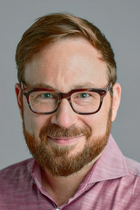Aid’s urban footprint and the challenges of operationalizing equity in development practice
Event Type
Virtual Workshop
Location / Date
Online, 09.12.2021
American Associations of Geographers’ (AAG) Development Geographies Specialty Group, German Development Institute / Deutsches Institut für Entwicklungspolitik (DIE)
In the second of five research-in-progress seminars co-hosted by the American Associations of Geographers’ (AAG) Development Geographies Specialty Group and the German Development Institute (DIE), Professor Gabriella Carolini (MIT Department of Urban Studies and Planning) is discussing her current research on the impact of international development’s entanglement with foreign investment capital on urban housing, infrastructures, and amenities. Focusing on the case of Maputo, the capital of Mozambique, Carolini argues that an increasing density of international actors has deepened the divide between rentier and international classes in the city on the one hand, and the majority of low-income residents on the other. In addition, Prof. Carolini posits that access to non-tax revenue sources from international agents is enabling Mozambican elites to forgo own-source revenues for major capital investments, which creates sociopolitical as well as economic externalities. The seminar is open to everyone interested in this topic irrespective of affiliation or geographic location, and both researchers and practitioners are encouraged to join. Participants need to register in advance to receive a copy of the paper and, on the day of the event, the Zoom link to the seminar. Professor Carolini is going to introduce her main arguments briefly at the beginning; those present will then be asked to discuss the paper with a view to co-producing constructive feedback. All participants should therefore read the paper in advance. The seminar will be moderated by Professor Jamey Essex (University of Windsor) and Professor Daniel Esser (DIE). Chatham House rules apply.
Paper abstract
How is local urban development, and governance therein, being shaped by the explosion of actors within the donor and investment community in African countries like Mozambique? Drawing on qualitative fieldwork in Maputo, existing data on aid and private sector flows to Mozambique, and a spatial analysis of new real estate developments between 2009 and 2017, I forward two arguments about the negative externalities fostered by the growing density of international development professionals and their foreign private-sector counterparts in the Mozambican capital of Maputo. First, I show that the increasing density of international actors in the capital city and their living needs, as well as how those needs are treated by the public sector, are deepening a housing, infrastructure, and amenities divide between the rentier and international classes in the city and the majority of low-income residents. Second, I contend that the very readiness of non-tax revenue sources from international agents is enabling a continued reliance on external funding, rather than own-source revenues, for major capital investments. This balance in favor of external financing further diminishes the already weak tax bargaining potential of the local population in making demands for urban development projects that directly serve them. In conclusion, I argue that the international development organizations portending an interest in the enhancement of urban equities and fiscal responsibility across cities like Maputo especially need to rethink their operational presence to better address the perverse externalities of their physical and socio-economic imprints on the urban landscapes in which they operate.
Hinweis
Während unserer Veranstaltungen werden z.T. Foto- und/oder Filmaufnahmen gemacht, die für Zwecke der Veranstaltungsberichterstattung und allgemeinen Öffentlichkeitsarbeit in verschiedenen Medien veröffentlicht werden. Sie haben jederzeit das Recht, die Foto- oder Videograf*innen darauf hinzuweisen, dass Sie nicht aufgenommen werden möchten. / During our events photos and/or videos may be taken which may be published in various media for the purposes of documentation and PR activities. You have the right at any time to point out to the photographer or videographer that you do not want to be photographed or filmed.
Event information
Date / Time09.12.2021 / 16:00 - 17:15
LocationOnline

